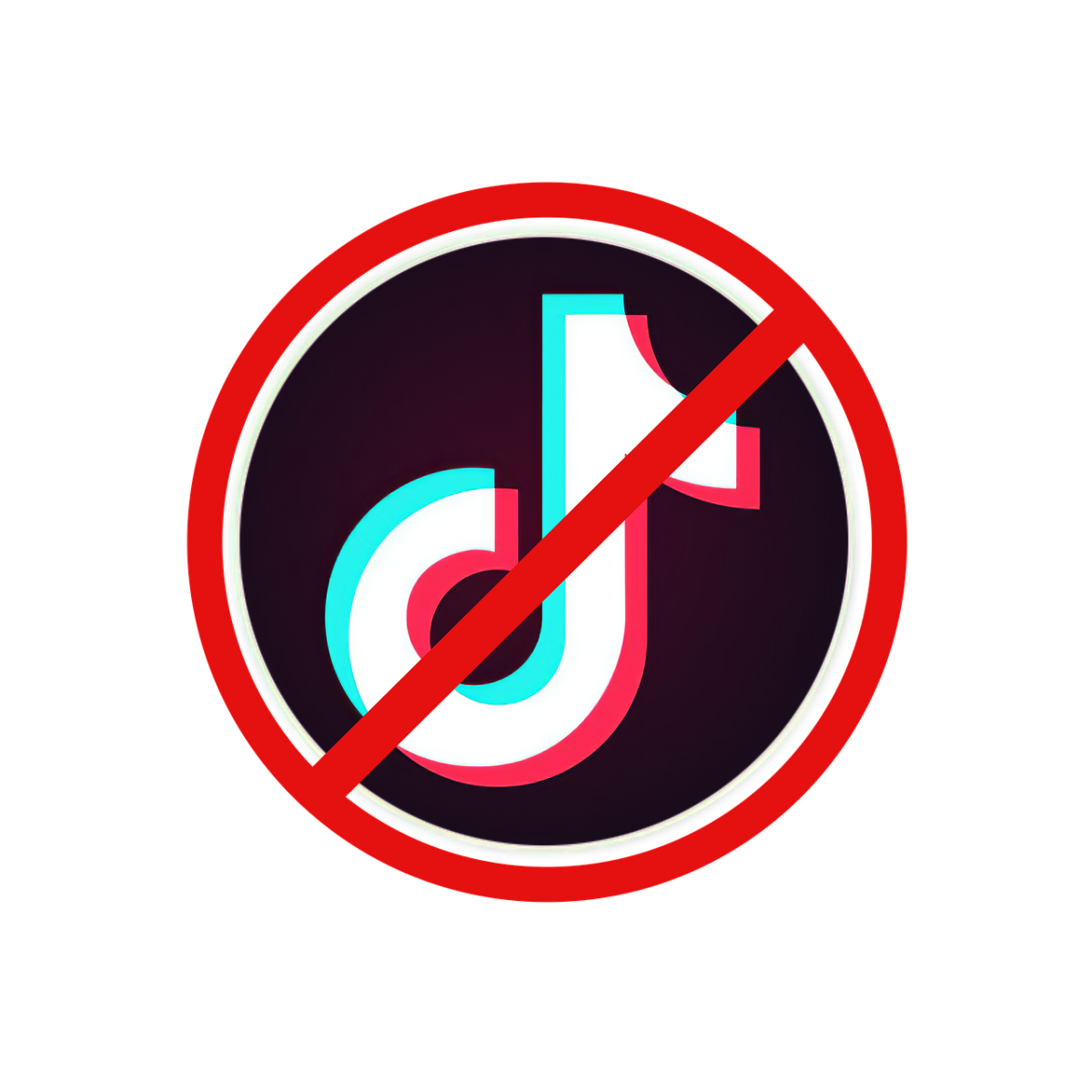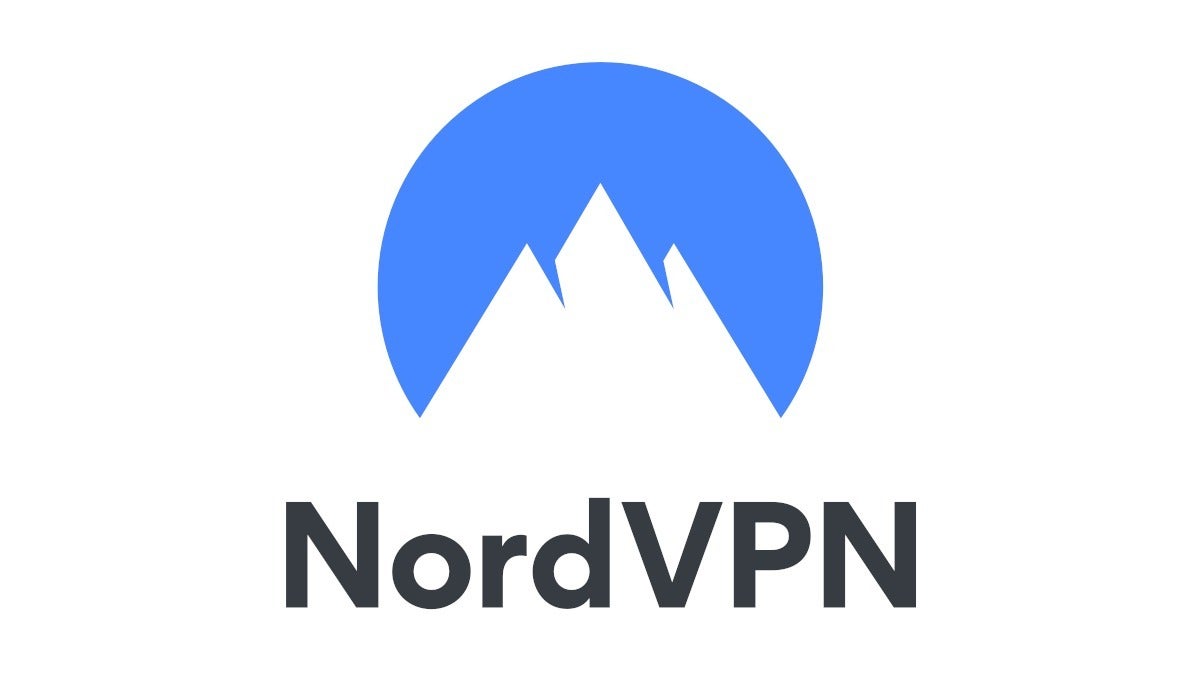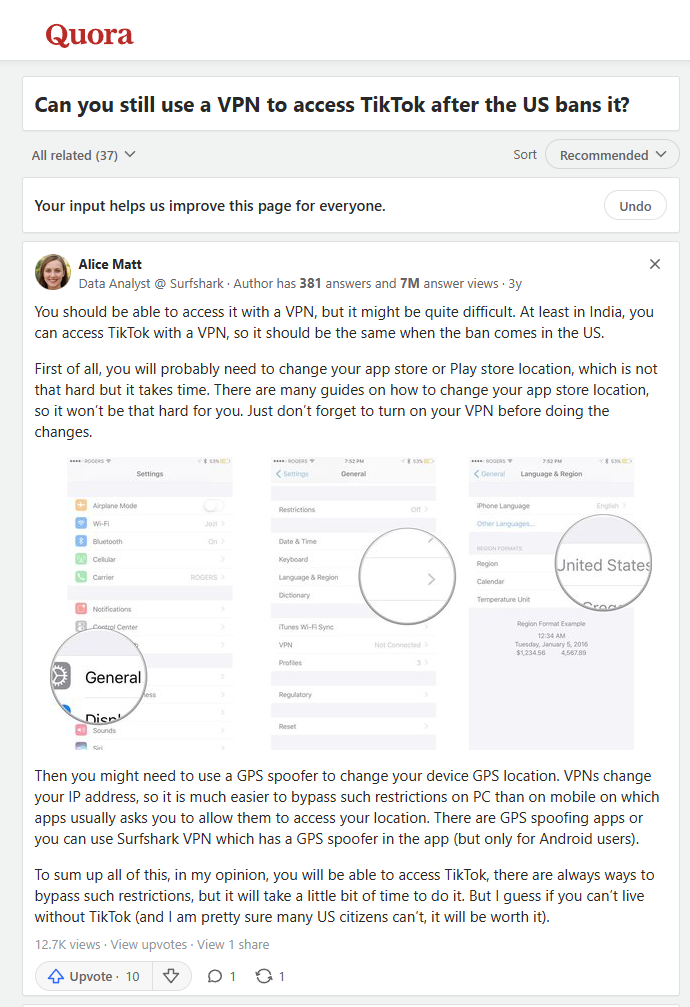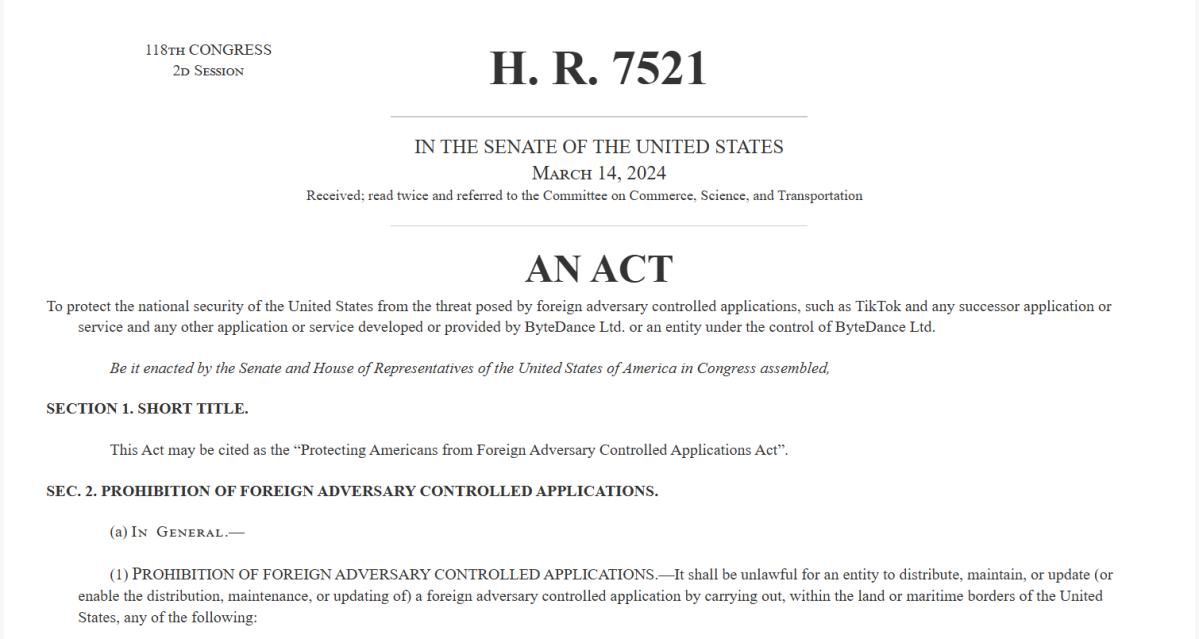Could your VPN get around the TikTok ban? What you need to know
The dreaded moment for lovers of #dancechallenges and #funnyvideos is one step closer to reality. In April, President Joe Biden signed a law that will effectively ban TikTok in the United States unless the Chinese-owned social media giant is sold within a year. TikTok responded last week by suing the U.S. government, arguing the law violates First Amendment rights.
As we wait for all the legal issues to resolve, now is a good time to stay two steps ahead, and ponder a fundamental question: If the ban does go into effect, could a VPN help you get around the new restrictions?
Much of the answer keys into the specific nature of the ban—namely, that app stores in the U.S. would ostensibly be forced to remove the TikTok app from their marketplaces. If that’s how the ban plays out, then theoretically a VPN should put you back in business, with the caveat that you’ll already need to have the TikTok app installed prior to the ban.
There’s a lot to unpack here, including what the law would require of TikTok, and how technically savvy users could respond. Read on for details. And if you’re looking for a VPN to make your digital life more more secure—or, who knows, preserve TikTok access—check out my rankings of the best VPNs.
How would a TikTok ban likely play out?The short but frustrating answer is that no one knows exactly how a TikTok ban would be implemented. While the law was passed and signed by president Biden, the actual details are still being worked out.
our pick for best vpn ExpressVPN
 Read our review
Price When Reviewed:
$6.67 per month
Best Prices Today:
$6.67 at ExpressVPN
Read our review
Price When Reviewed:
$6.67 per month
Best Prices Today:
$6.67 at ExpressVPN
“It’s too early to tell yet how this ban might play out,” ExpressVPN Privacy Advocate Lauren Hendry Parsons told me. “With TikTok seeking to fight this in the courts, and the timeline of the new law not requiring action for nine to 12 months, it’s possible that we won’t know the concrete outcome of this latest legislation until late 2025 or beyond.”
Still, there is some precedent that gives us an idea as to how it all could transpire. Over email, Surfshark’s VPN Product Manager Justas Pukys wrote, “It’s difficult to predict how exactly the ban could take place, but it might be implemented in a similar manner as it was in 2020 when the U.S. Department of Commerce ordered Apple and Google to remove TikTok from their app stores.”
In that ban, which was ultimately blocked in court, the U.S. Dept of Commerce sought to remove the TikTok app from app stores and restrict updated versions of the app from being downloaded by users who already had the apps installed.
Another example we can turn to is a 2020 ban on TikTok in India, which saw both Apple and Google remove the app from their app stores. After the ban, Indian users who already had TikTok installed on their devices encountered an error message stating the app was “complying with the Government of India’s directive.”
The difference between the India ban and this new U.S. ban is that TikTok never really challenged the Indian government. In contrast, it appears as if TikTok will fight the U.S. ban to the bitter end.
How to get around the TikTok ban with a VPN

Motionstock

Motionstock
Motionstock
There are a few potential options to circumvent the TikTok ban, should it go into effect. The caveat here is that methods to get around the ban will depend on the exact implementation of the law—something we’re still waiting to see.
Mentioned in this article NordVPN
 Read our review
Price When Reviewed:
$3.49 per month
Best Prices Today:
$3.49 at NordVPN
Read our review
Price When Reviewed:
$3.49 per month
Best Prices Today:
$3.49 at NordVPN
One of the best options will presumably be to use a VPN. Laura Tyrylytė, Head of Public Relations at NordVPN told me, “Usually, users circumvent bans of certain applications by changing locations with a VPN and reaching restricted websites.”
Indeed, NordVPN reports it saw a “demand uplift” of more than 15 percent in the U.S. beginning March 14, the day the House of Representatives passed H.R. 7521, the so-called TikTok ban. Tyrylytė cautioned that its impossible to say the surge of interest was directly connected to the legislation though.
If the U.S. government restricts web servers hosting TikTok, then the simple solution would be to connect to a VPN server located outside of the U.S. that does not have the same restrictions. For example, it could be as simple as connecting to a VPN server in Canada—closer servers usually mean faster speeds—and then loading up the TikTok app or website.
However, this would only work for users who already have the app installed on their devices prior to the ban. Indeed, it’s likely the ban would force app stores to remove the TikTok app entirely. “If U.S. users will no longer be able to find TikTok through app stores, then a VPN may not be of much help,” Surfshark’s Pukys pointed out.
So, what’s the solution if you don’t have the app already installed? We can look to some savvy user recommendations for possible solutions.

A post on Quora detailing a potential means of circumventing the TikTok ban with a VPN.

A post on Quora detailing a potential means of circumventing the TikTok ban with a VPN.
Sam Singleton

A post on Quora detailing a potential means of circumventing the TikTok ban with a VPN.
Sam Singleton
Sam Singleton
A post on Quora from a user claiming to be Surfshark Data Analyst Alice Matt has one idea: “First of all, you will probably need to change your app store or Play store location… Just don’t forget to turn on your VPN before doing the changes.” Changing your app store location should allow you to download apps that are not available in your own country.
The Quora users goes on to say, “Then you might need to use a GPS spoofer to change your device GPS location. VPNs change your IP address, so it is much easier to bypass such restrictions on PC than on mobile.” Since many mobile apps ask to allow for location data access, a GPS spoofer application could be required in addition to a VPN if you want to use TikTok on your mobile device.
Theoretically, this advice is sound. But I could not confirm the identity of the person who posted it, nor did Surfshark respond when I asked for comment. Therefore, it’s best to take it all with a grain of salt.
There is also the possibility of sideloading the TikTok app on your device. Sideloading is the process of using unapproved distribution channels to install apps on your phone or tablet. This entails downloading the app from a source far outside the safety zones of the Apple or Google app stores.
“Sadly, downloading applications from unauthorized websites increases the risk of infecting devices with malicious applications,” said NordVPN’s Tyrylytė. So, if you decide to sideload the TikTok app, make sure you’re doing it from a reputable third-party, and always use some form of malware protection such as a strong antivirus.
Why is TikTok being banned?Ever since ByteDance bought the app in 2017, national security officials in the U.S. have been concerned about the Chinese government’s relationship with the company, and how the app the could be tapped to collect data on Americans, and even influence our social fabric.
Since that time, TikTok has become one of the most popular social media platforms in the world. According to a Pew Research study, TikTok is now where 14 percent of U.S. adults and a staggering one-third of all people ages 18 to 29 regularly get their news.
FBI Director Christopher Wray has previously stated that ByteDance is “controlled by the Chinese government” and has warned that Chinese authorities could use the app to influence people by manipulating the algorithm and allowing the government to collect user data for “traditional espionage operations.”

The Senate’s H.R. 7521 bill was singed into law by Biden and prohibits the distribution, maintenance, or updating of ByteDance’s TikTok application.

The Senate’s H.R. 7521 bill was singed into law by Biden and prohibits the distribution, maintenance, or updating of ByteDance’s TikTok application.
Sam Singleton

The Senate’s H.R. 7521 bill was singed into law by Biden and prohibits the distribution, maintenance, or updating of ByteDance’s TikTok application.
Sam Singleton
Sam Singleton
The same concerns that Wray referenced have caught fire among U.S. lawmakers. In March, the House crafted bipartisan legislation (H.R. 7521) to ban TikTok, and then the Senate voted overwhelmingly to move it to the president’s desk, with 79 senators in favor, 18 against, and three not voting.
“For years we’ve allowed the Chinese Communist party to control one of the most popular apps in America… that was dangerously shortsighted,” said senator Marco Rubio, R-Fla. On the other side of the aisle, senator Mark Warner, D-Va, told NPR, “The Communist Party of China has an authoritarian regime that doesn’t respect privacy, doesn’t respect individuals’ rights… I don’t think we should sit by and allow, in effect, a media presence that is five or 10 times the size of NPR to potentially be broadcasting Chinese propaganda in an election year.”
Whether these fears have a basis in reality is a matter for debate. Brendan Gilligan, a legal fellow at the Electronic Frontier Foundation (EFF), told me, “At least so far the government’s talk about the harms have been very vague. They haven’t discussed why this specific step of banning the distribution, maintenance, or updating of TikTok is necessary, which the First Amendment requires.” That likely means ByteDance and other groups have a strong case for challenging the law in court.
In the meantime, ByteDance has until January 19, 2025 to sell TikTok. Under the legislation, Biden has the option to extend the deadline an additional 90 days if he determines that progress is being made toward a sale. For now, ByteDance seemingly has no intention of selling TikTok, and made its position crystal clear by suing the U.S. government a few weeks after the law passed. The ensuing legal fight is now in the hands of the U.S. Court of Appeals. It’s First Amendment rights in the red corner versus National Security in the blue corner, so get ready to rumble.
Could you get in trouble for using TikTok?So, let’s say ByteDance never sells, and the TikTok ban is the new status quo. What’s the impact on U.S. users if they find a way to use the platform?
The EFF’s Brendan Gilligan explains: “Number one, the law is targeted at intermediaries, not targeted at users. Second, the law explicitly denies the Attorney General the authority to enforce it against individual users.” The upshot is the law itself could not be used to criminalize individuals who continue to use or access TikTok—so, Gen-Zers, you can now collectively breathe a sigh of relief.
That being said, it gets a little murky when it comes to the legality of using a VPN to access TikTok. Gilligan notes, “While the use itself is not [criminalized], how you get to the use potentially is.” Regarding VPNs, he says, “I haven’t seen VPNs being mentioned as a concern of the government.” He goes on to say, “It seems like they’re clearly focused on app stores.”
Even if the use of a VPN to access TikTok is criminalized under this law, there isn’t much that the U.S. government could do to monitor or enforce this. Most VPNs have strict no-log policies and do not keep records on user traffic.
As ExpressVPN’s Parsons told me, “Consumers are generally worried that VPN services may be compelled by government services to share user data. ExpressVPN does not do this and never shares data with third parties. We do not collect anything that would allow ExpressVPN or anyone else to match an individual to specific network activity or behavior. We have designed our systems to never have sensitive data about our customers. Even when compelled, we cannot provide data that we do not possess.”
While this may be specific to ExpressVPN, the same structures are in place for most of the other top VPN companies. This is why it’s especially important to choose a good VPN provider with a strict no-logs policy, preferably verified by regular independent audits.
TikTok users who want to access the app via a VPN shouldn’t be too worried, though. The main purpose of this ban is to restrict mass retention of user data by ByteDance and, by extension, the Chinese government. It’s not intended to keep U.S. citizens from sharing short-form videos.
Whether banning TikTok will truly make U.S. citizens more safe is up for debate though. Gilligan said, “Enacting this legislation has undermined the U.S.’s longstanding championing of the free flow of information as a fundamental democratic principle… The solution to protecting American data is not focusing on one specific app, but rather comprehensive consumer privacy data regulations.”
VPN